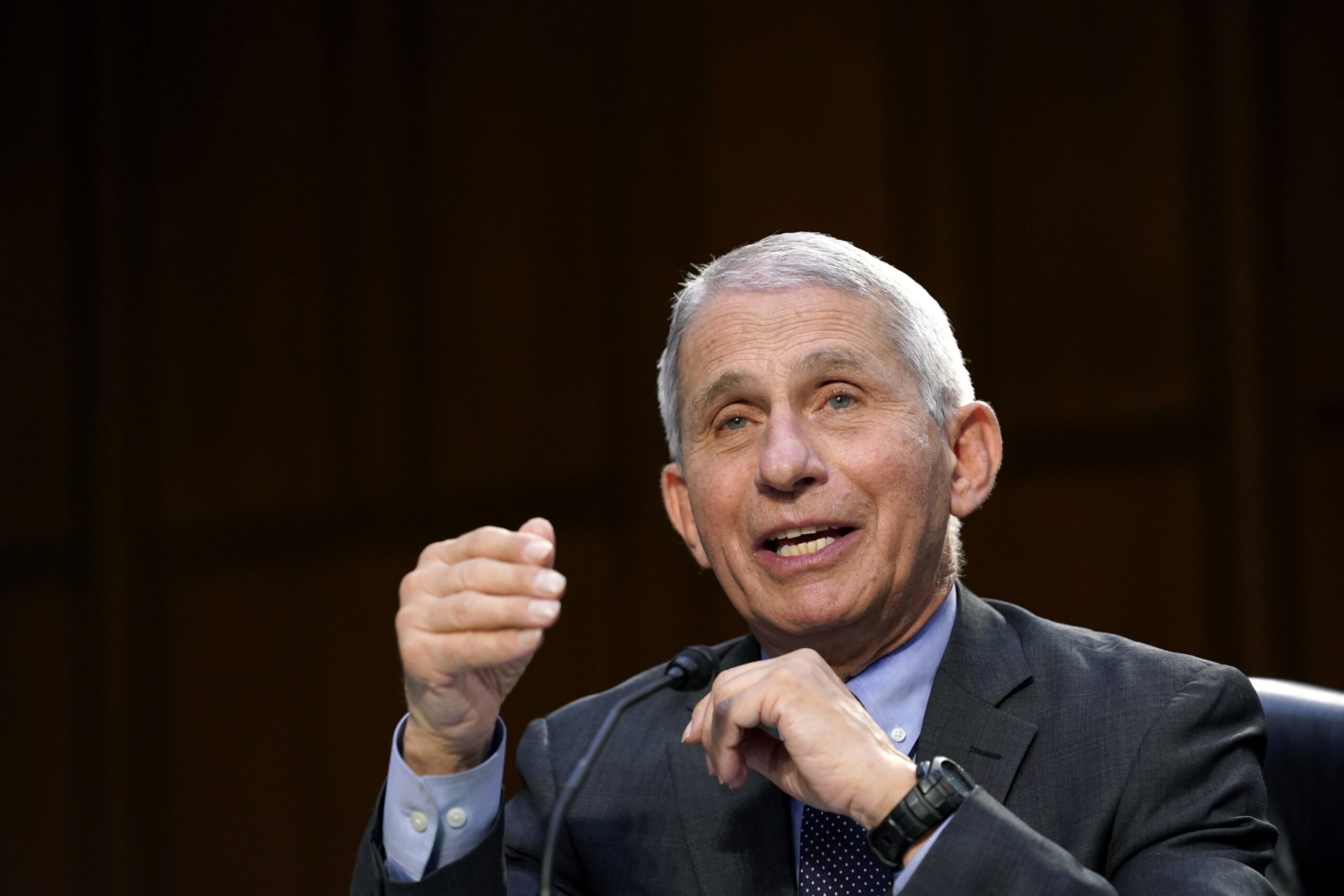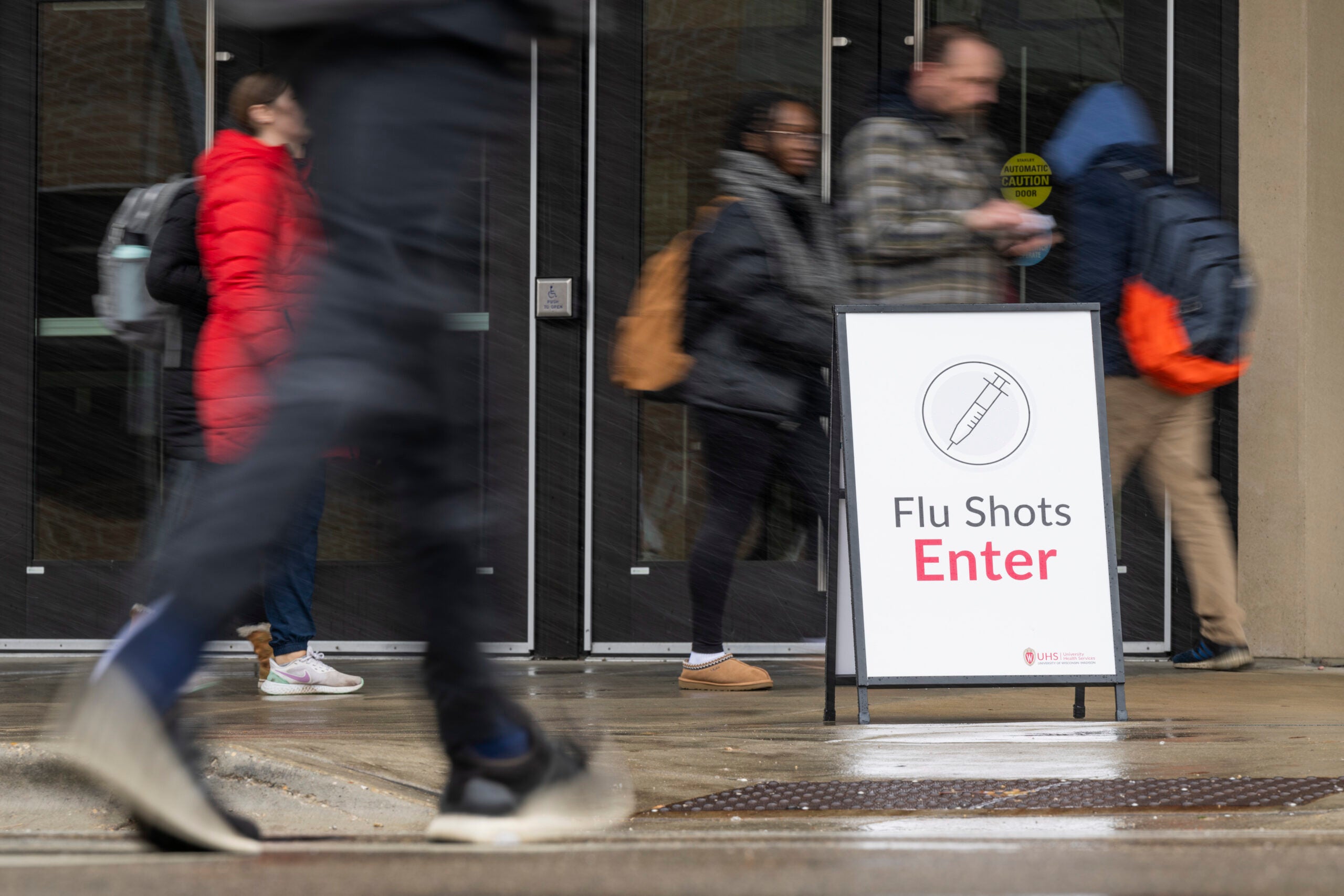Dr. Anthony Fauci says that communities with high vaccination rates can safely begin to reopen, but he cautioned that there’s much scientists are still learning about the pandemic and the disease could stay with us for a while.
During an interview on WPR’s “The Morning Show,” Fauci, chief medical adviser to the White House and the public face of the federal government’s response to the COVID-19 pandemic, said that some public health measures enacted to stymie the spread of COVID-19 in recent months could return in certain situations.
“I think that getting things open and getting back to normal, I don’t think it should be an all or none phenomenon,” he said. “I think under certain circumstances, depending upon the dynamics of the outbreak in a particular area, you’re still going to have to do the kinds of precautions that are recommended by the (Centers for Disease Control and Prevention).”
News with a little more humanity
WPR’s “Wisconsin Today” newsletter keeps you connected to the state you love without feeling overwhelmed. No paywall. No agenda. No corporate filter.
Fauci, who has been the director of the National Institute of Allergy and Infectious Diseases since 1984, said he’s hopeful about the chances of controlling the pandemic, but noted that there are many things scientists still don’t understand about the virus.
He said it’s too early to know whether the pandemic will remain an ongoing threat in the world, similar to the seasonal influenza, which according to the CDC. has killed between 12,000 and 61,000 people a year in the United States over the past decade.
“When you look at an infectious disease, you ultimately either eradicate it, you eliminate it or you control it. And there’s various levels of control,” he said. “We’ve only eradicated one infectious disease in literally history, and that is smallpox by a very effective vaccination campaign.”
Fauci stressed that he doesn’t know what the case will be with COVID-19.
“I would hope that we can eliminate it from our society,” he said. “But that may not be in the cards, at least for the foreseeable future. We may hopefully be able to control it enough so that it doesn’t disrupt society the way it is doing right now.”
Similarly, Fauci said that more research needs to be done about how and why the virus affects so-called “long-haulers,” those who have suffered persistent health consequences after falling sick from the virus.
“That is a real phenomenon. And we’ve now begun to study it very intensively,” he said. “But we don’t have many antidotes to it because we don’t know what the pathogenic mechanisms are. And that’s the reason why we’re putting a considerable effort into trying and learning more about that, because it is a real phenomenon and is seen in a substantial proportion of people who recover from the initial onslaught of the virus, but have the persistence of unexplained symptomatology.”
Looking ahead, Fauci said it seems likely that high school children could be vaccinated in time for the start of the next school year, but that children younger than 12 years old probably won’t be vaccinated until the end of 2021.
“That being the case, the CDC will likely continue to recommend the wearing of masks of children, and particularly those children of the age that have not yet been vaccinated,” he said.
Fauci lamented the political polarization that has revolved around the pandemic, which he called a “common enemy.” He said that he understands that many people have been frustrated with the shifting guidance on how to thwart the virus.
“You’ve got to continue to collect data, information and evidence. And I think sometimes, what people get confused with is that science is a dynamic process,” he said.
He said that researchers already have a better understanding about COVID-19 than they did since the pandemic began.
“We know things much better and much differently now than we did in January 2020. And as things evolve, how you look at this pandemic, how you address it, guidelines, policies and things can change,” he said. “And that’s not flip-flopping. That’s being open-minded enough and flexible enough to continue to be guided by the facts and the evidence as they evolve. If this were a static process, we would know everything we needed to know right from the get go. But it isn’t. It’s a dynamic process that continues to evolve. And science, by its very nature is self-correcting, that you learn something today and then you find out that as the situation evolves, things might change and you have to be adaptable enough to make changes as new truths and new information come out.”
Wisconsin Public Radio, © Copyright 2026, Board of Regents of the University of Wisconsin System and Wisconsin Educational Communications Board.







